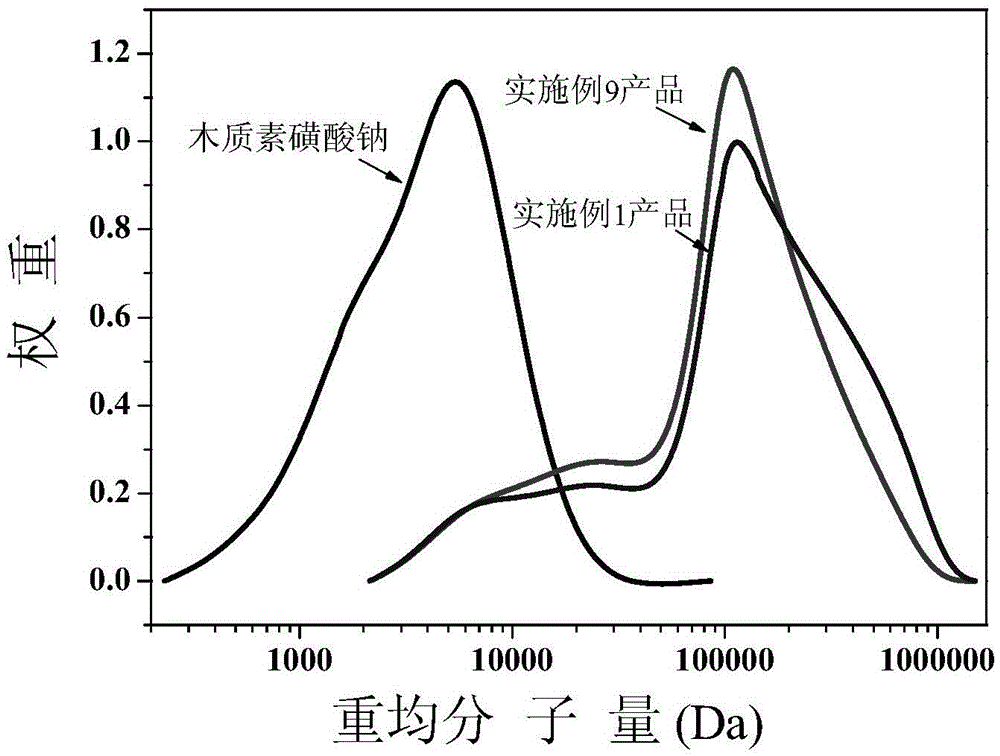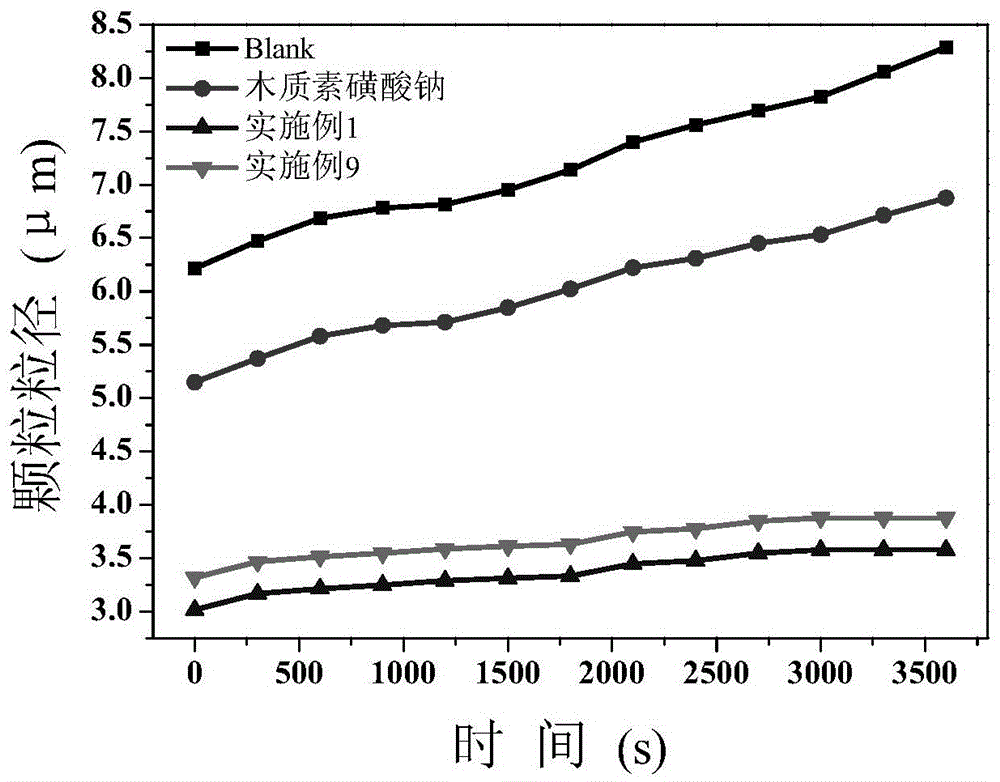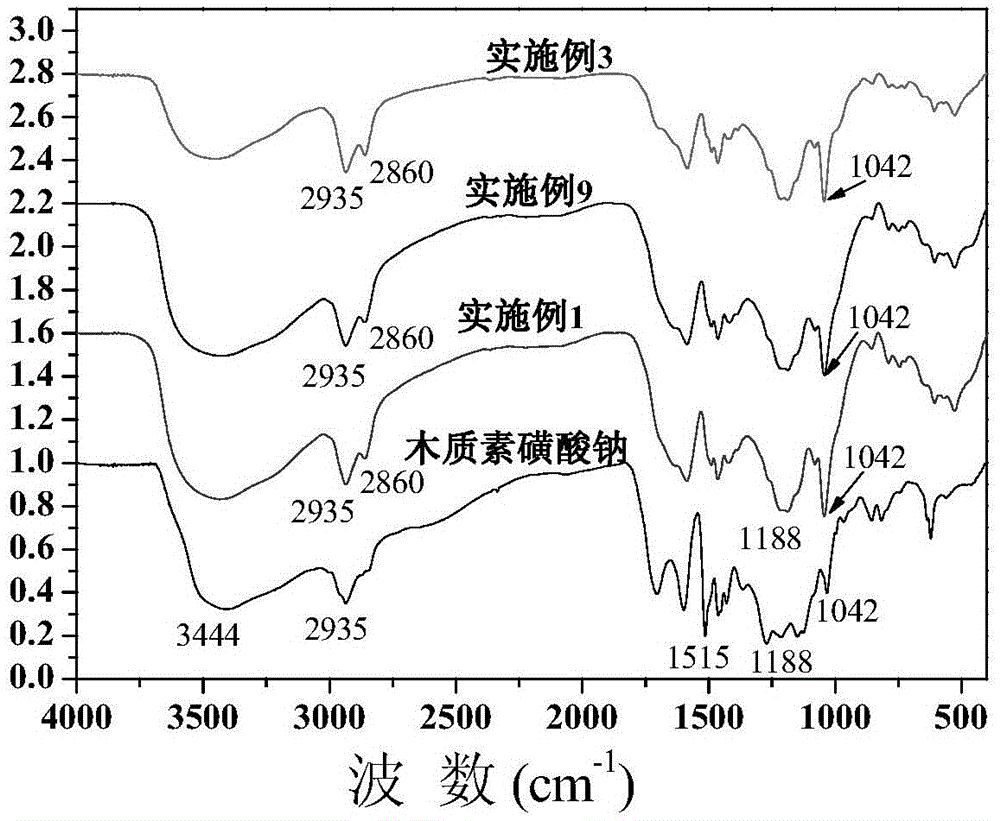A kind of hydrocarbon-based bridged lignin-based polymer and its preparation method and application
A lignin-based, hydrocarbon-based bridging technology, applied in chemical instruments and methods, chemical/physical processes, liquid carbon-containing fuels, etc., can solve the problems of large dispersion, harsh reaction conditions, unfavorable industrial applications, etc., and achieve dispersion performance Improvement, easy operation control, non-toxic molecular weight effect
- Summary
- Abstract
- Description
- Claims
- Application Information
AI Technical Summary
Problems solved by technology
Method used
Image
Examples
Embodiment 1
[0037] Take 20 grams of sodium lignosulfonate, add 2 grams of sodium hydroxide, add 0.5 grams of potassium iodide, raise the temperature to 60 ° C, slowly inject 100 grams of 1,2-dibromoethane with a syringe, and then react at 50 ° C for 24 Hours, after the reaction, cool to room temperature to obtain an alkane-bridged lignin-based polymer, which is then purified and dried to obtain a powdery product.
Embodiment 2
[0039] Take 20 grams of calcium lignosulfonate, add 4 grams of potassium hydroxide, and then 2 grams of sodium iodide, raise the temperature to 100 ° C, slowly inject 1 gram of 1,10-dibromodecane with a syringe, and then at 100 ° C React for 4 hours, cool after reaction, then purify and dry to obtain a powdery product.
Embodiment 3
[0041] Take 20 grams of sodium lignosulfonate, add 10 grams of potassium carbonate, and add 10 grams of tetrabutylammonium bromide to obtain intermediate reaction solution A. Take 10 grams of 1,6-dibromohexane into the reaction flask, slowly drop the reaction solution A into the constant pressure dropping funnel at 60°C, react at 90°C for 10 hours, cool to room temperature after the reaction, and then Purified and dried to obtain a powdered product.
PUM
| Property | Measurement | Unit |
|---|---|---|
| shear viscosity | aaaaa | aaaaa |
| shear viscosity | aaaaa | aaaaa |
| molecular weight | aaaaa | aaaaa |
Abstract
Description
Claims
Application Information
 Login to View More
Login to View More - R&D
- Intellectual Property
- Life Sciences
- Materials
- Tech Scout
- Unparalleled Data Quality
- Higher Quality Content
- 60% Fewer Hallucinations
Browse by: Latest US Patents, China's latest patents, Technical Efficacy Thesaurus, Application Domain, Technology Topic, Popular Technical Reports.
© 2025 PatSnap. All rights reserved.Legal|Privacy policy|Modern Slavery Act Transparency Statement|Sitemap|About US| Contact US: help@patsnap.com



